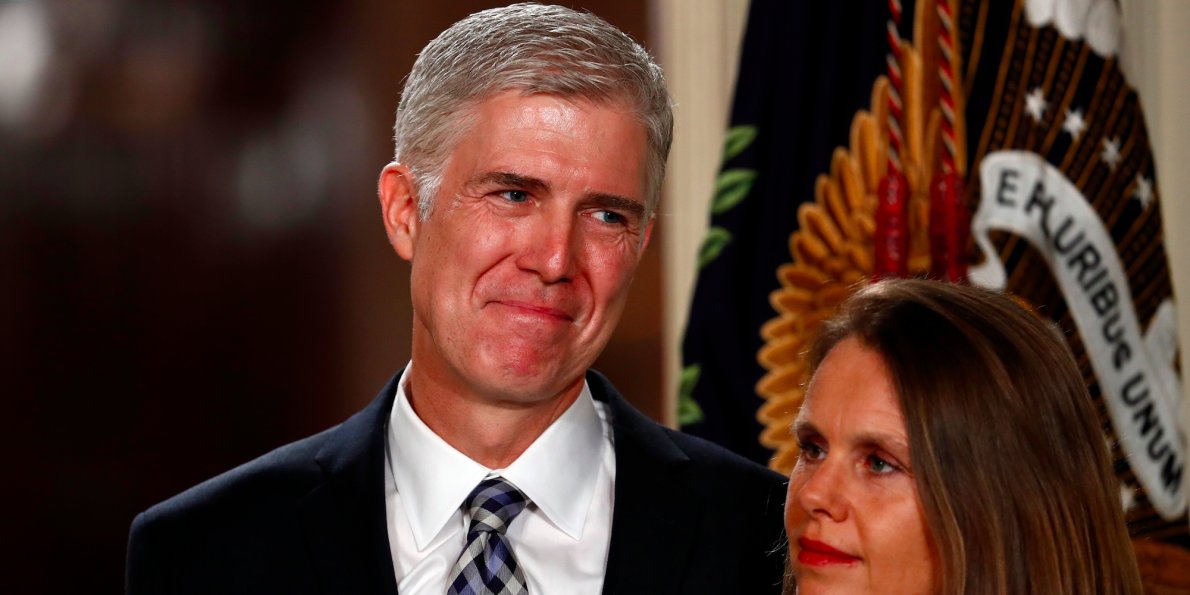
U.S. Supreme Court nominee Neil Gorsuch has a slender case record when it comes to energy and related environmental issues, so legal experts concede it’s hard to pin down how he’d vote on things like the Clean Power Plan.
Truthfully, Gorsuch’s nomination probably has a better chance of success than the CPP, which is bottled up in federal appeals court and has zero support from the Trump Administration even if it makes it to the nation’s highest court. The Denver appellate judge is undergoing the start of his confirmation hearing this week before the U.S. Senate.
Senators are highly concerned about how Gorsuch might vote on key social issues such as a potential future challenge to pro-choice laws. In the background but perhaps more likely are cases which will deal with U.S. environmental rules on energy producers such as coal-fired electric generation and renewable standards.
In that respect, who knows?
“His record is kind of skimpy,” said Peter McGrath, a member of the Moore & VanAllen law firm based in Charlotte, North Carolina. “It’s hard to predict where he might rule.”
McGrath’s research dug up a couple of possible directions on energy and environmental issues that Gorsuch might be headed if and when he is confirmed as a Supreme Court justice. One is the so-called “Chevron Deference Doctrine,” which refers to a 1984 Supreme Court case which held that courts should defer to regulatory agencies—in that case it was the EPA—unless the regulation is deemed as unreasonable.
A lower court had ruled that the EPA did not have the authority to a grant a new permitting process connected to the Clean Air Act. The new rule allowed manufacturing plants to get permits even if they didn’t meet pollution standards, as long as total emissions at the producing did not increase.
The National Resource Defense Council sued in opposition to the new rule and found itself in a court battle with energy giant Chevron USA. An appellate court ruled in the NRDC’s favor but the high court sided for Chevron.
“Gorsuch has said he believed that it was wrongly decided,” McGrath said, “and that it limits the authority of the judiciary.”
What makes all of that even more interesting is Gorsuch’s family connection to the Chevron case. His mother, the late Anne Gorsuch Burford, was Ronald Reagan’s first EPA administration until 1983, around the time the new permitting rule was adopted.
Observers are painting Gorsuch as a strict constructionist. This “letter of the law” predilection might have been on display in Gorsuch's lengthy tenure as a judge on the 10th Circuit U.S. Court of Appeals based in Denver.
In “Energy and Environmental Legal Institute vs. Epel” two years ago, Gorsuch rejected an out-of-state coal producer’s challenge to Colorado’s renewable energy portfolio standard, denying the claim that it was unconstitutional under the dormant commerce clause. “If there’s any disproportionate adverse effect felt by out-of-state producers or any disproportionate advantage enjoyed by in-state producers, it hasn’t been explained to this court,” Gorsuch wrote.
That time, McGrath noted, he deferred to precedent from the U.S. Supreme Court, citing opinions from the late Justice Antonin Scalia—whom he is nominated to replace—and Clarence Thomas.
“The conclusion he ended up coming to in that Colorado opinion,” McGrath said, “(was) 'I’m upholding this law because no one has shown it unfairly discriminates against out-of-state power producers.'”
McGrath wonders how Gorsuch would consider states, such as California and New York, which have even more stringent renewables standards. Will the new Supreme Court justice contend that such “clean energy” rules are too much of a burden on other generators?
The Sierra Club has alleged that Gorsuch is hostile to
environmental protection, but a sampling of his
jurisprudence showed he also has ruled in favor of the EPA
on at least one occasion. In 2010, he sided with the
EPA, saying the agency had the right to change its
interpretation of a toxic-waste regulation without inviting
public opinion.
“Even assuming the rule of administrative law that U.S. Magnesium urges us to adopt—that an agency may not interpret a substantive (or legislative) regulation one way and then later adopt a competing interpretation without undergoing notice and comment rulemaking—the initial interpretation is only binding if it is definitive,” the 10th Circuit opinion read. “And, as we will explain, nothing in EPA’s Report to Congress, or in its other communications or actions, qualifies as that.”
In other words, the EPA’s initial report to Congress on the contested wastewater was tentative to begin with, so it need not seek notice and comment to change that ambiguous interpretation.
“I’ve said he’s gone out of his way in other opinions to say we should overturn Chevron, but it appears he gave a lot of deference to the EPA in the magnesium mining case,” McGrath said.
Ultimately, McGrath said he believes Gorsuch will be a conservative justice. He could follow in the strict constructionist footsteps of Scalia, whom he admires, or the more conciliatory, “swing vote” style of Anthony Kennedy, for whom he clerked.
“So maybe in between those two,” McGrath predicted. “I think in most cases he will vote the way Scalia would have voted.”
One thing that no one disputes, he added, is Gorsuch’s integrity and intelligence. If the attorney had a vote in this, he likely would confirm.
“I did not vote for Trump but I would not have a reason not to vote for Gorsuch,” he said.
Copyright © 2007-2016 PennWell Corporation, Tulsa, OK. All Rights Reserved.